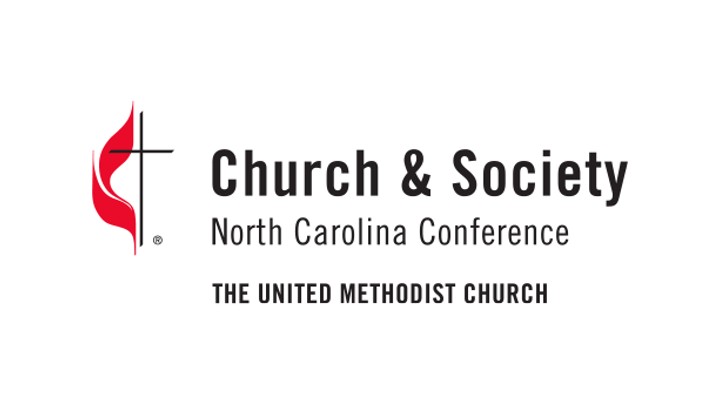The North Carolina Conference Board of Church and Society is a group of committed clergy and laity who seek to relate the gospel of Jesus Christ to the ministry and mission of our churches and communities. One role of the Board is to help churches have an awareness and understanding of the UMC’s Social Principles. Each quarter, the Board will highlight an issue of justice, share a story of good work happening in our communities, or let you know how you can get involved in advocacy as a United Methodist. All are welcome to sign up to receive these quarterly emails here.
Attention, Israel! God, our God! God the one and only! Love God, your God, with your whole heart: love him with all that’s in you, love him with all you’ve got! Write these commandments that I’ve given you today on your hearts. Get them inside of you and then get them inside your children. Talk about them wherever you are, sitting at home or walking in the street; talk about them from the time you get up in the morning to when you fall into bed at night. Tie them on your hands and foreheads as a reminder; inscribe them on the doorposts of your homes and on your city gates. (Deuteronomy 6:4-9, The Message)
Charity, Social Justice – or Both?
In the current climate of intense public education scrutiny in North Carolina, church volunteers and other education advocates are working overtime to serve as charitable organizations and vehicles for social justice. Our NC General Assembly refused to comply with the 1997 Leandro decision to fully fund our public schools in a manner that ensures that all children receive a “free, appropriate public education.” Inadequate funding causes our schools to struggle to educate children. Our General Assembly withholds millions of available dollars while increasing the amount earmarked for vouchers that allow public tax dollars to be used for private school tuition. Per pupil expenditure is among the lowest in the country, the teacher shortage is at an all-time high, and educators’ salaries are the lowest in the Southeast.
Yet amid this bleak picture, churches throughout our conference sponsor school supply drives, provide food backpacks, maintain clothing closets at schools, and provide caring adults to help children learn to read. And more and more churches are hosting free after-school tutoring services and summer literacy camps. These efforts are hallmarks of United Methodist charity.
While charity meets immediate needs, how can we affect long-term, systemic change that translates to social justice for all children? We must make people aware of the challenges that face public schools, educate congregations about solutions, and mobilize them to advocate for public schools. One of our valued partners in this effort is Pastors for NC Children. This non-denominational, non-profit public education advocacy organization is promoting “Mission Amplify,” a letter-writing campaign that teaches church groups how to write messages encouraging their government representatives to support public schools. And our most potent tool is the vote. Identify candidates who support public education, regardless of party affiliation, and support them.
Charity and social justice are not an either/or choice. It can and should be both.
David Rockefeller
Director, Congregations for Children (C4C)
Prayer:
God of justice and mercy, You who have shown us how to live well with one another, help us teach our children Your ways. Give us discernment and courage to advocate for our children, for quality public education for every child, for educators and school staff, and for parents. Just as Christ loved the children of the world, we strive to love as He loved. Amen.
What does the UMC Say….
Our United Methodist Social Principles affirm that all children have the right to quality education (¶ 162C). Moreover, in the Book of Resolutions, the UMC urges United Methodists worldwide to advocate for their governments to provide quality education for all children. Read More

